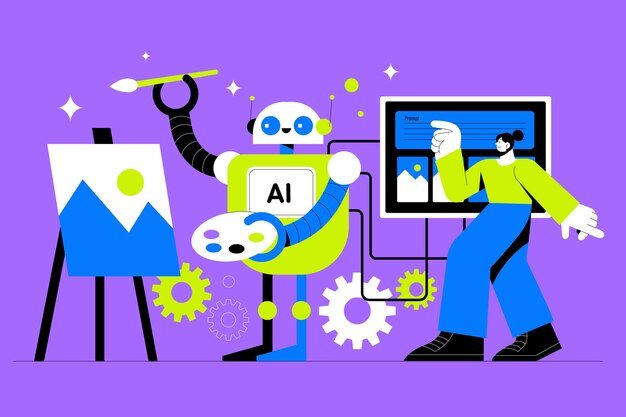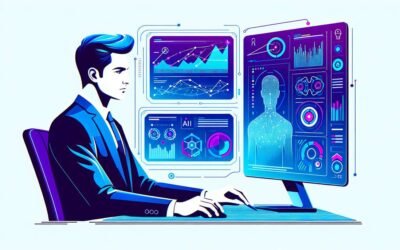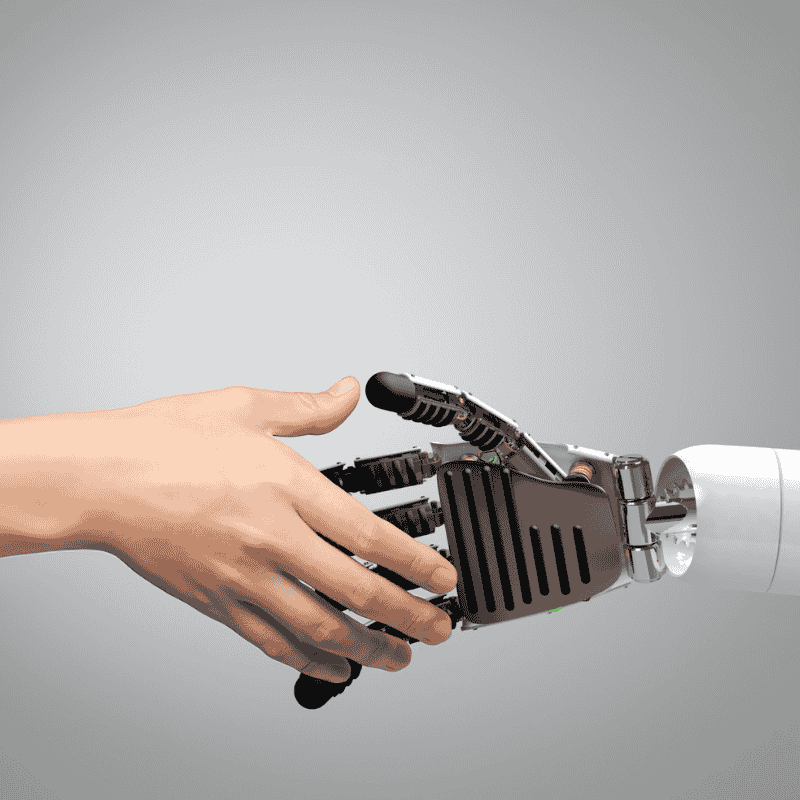🚨 UNPOPULAR OPINION: Most businesses are implementing AI marketing automation completely wrong—and it’s costing them thousands.
Here’s the hard truth: slapping AI tools onto your e-commerce strategy without a clear plan doesn’t just waste time—it drains your budget and leaves revenue on the table. While competitors are leveraging AI marketing automation to personalize experiences, predict buyer behavior, and scale campaigns effortlessly, too many brands are stuck in the dark ages, relying on guesswork and manual processes.
The problem? Misunderstanding the power of automation. AI isn’t just about sending generic emails or running rudimentary ads—it’s about creating hyper-targeted, data-driven marketing that converts browsers into loyal customers. The opportunity? Businesses that harness AI the *right* way see explosive growth: higher conversion rates, lower acquisition costs, and a seamless customer journey that feels tailor-made.
In this guide, you’ll uncover:
✅ The proven AI marketing automation strategies dominating e-commerce in 2025—no fluff, just tactics that work.
✅ Real-world case studies showing how brands boosted revenue by 30%+ using AI-driven personalization.
✅ A step-by-step roadmap to implement automation without the overwhelm (even if you’re not tech-savvy).
✅ The costly mistakes 90% of businesses make—and how to avoid them before they tank your ROI.
If you’re ready to stop leaving money on the table and start leveraging AI marketing automation like the top 1% of e-commerce brands, keep reading. The future of scalable, profit-driving marketing is here—let’s dive in.
AI Marketing Automation Benefits for E-Commerce Businesses
AI marketing automation has emerged as a game-changer for e-commerce businesses, offering tools and strategies to streamline operations, enhance customer experiences, and drive revenue growth. By leveraging AI-powered solutions, online stores can automate repetitive tasks, deliver personalized marketing campaigns, and make data-driven decisions that lead to measurable results. But what exactly makes AI marketing automation so valuable for e-commerce? Let’s dive into the key benefits and how they can transform your online business.
Why AI Marketing Automation is Essential for E-Commerce
In today’s competitive digital marketplace, e-commerce businesses face challenges like rising customer expectations, increasing ad spend, and the need for hyper-personalized experiences. AI marketing automation addresses these pain points by automating processes, analyzing vast amounts of data, and delivering actionable insights. Here are some of the standout AI marketing automation benefits:
- Personalized Customer Experiences: AI tools analyze customer data, such as browsing history, purchase behavior, and demographics, to create tailored product recommendations and marketing messages. For example, an online fashion retailer can use AI to suggest outfits based on a customer’s style preferences, increasing the likelihood of a purchase.
- Improved Efficiency and Productivity: Automating repetitive tasks like email marketing, ad creation, and customer segmentation frees up time for your team to focus on strategic initiatives. AI marketing automation features allow you to scale your campaigns without increasing your workload.
- Enhanced Customer Retention: By predicting customer behavior and identifying at-risk buyers, AI helps you implement targeted retention strategies. For instance, sending personalized discount offers to customers who haven’t made a purchase in a while can re-engage them and boost loyalty.
- Data-Driven Decision Making: AI provides actionable insights by analyzing trends, customer preferences, and campaign performance. This enables you to optimize your marketing strategies and allocate resources more effectively.
- Cost Savings: Automating manual processes reduces operational costs while maximizing ROI. AI-driven tools can also optimize ad spend by targeting the right audience at the right time, minimizing wasted resources.
Furthermore, AI marketing automation integrates seamlessly with popular e-commerce platforms like Shopify, WooCommerce, and Magento, making it accessible for businesses of all sizes. Whether you’re a small online store or a large enterprise, these tools can help you stay competitive in a rapidly evolving market.
Real-World Examples of AI Marketing Automation in Action
To better understand the AI marketing automation advantages, let’s look at a few real-world applications:
- Amazon’s AI-Powered Recommendations: Amazon uses AI to analyze customer behavior and deliver personalized product suggestions, which account for a significant portion of their sales. This level of personalization is made possible through AI marketing automation.
- Chatbots for Customer Support: Many e-commerce businesses use AI-powered chatbots to handle customer inquiries 24/7. These bots provide instant responses, resolve common issues, and even upsell products, enhancing the overall customer experience.
- Dynamic Pricing Strategies: AI tools analyze competitor pricing, market trends, and customer demand to adjust prices in real-time. This ensures that your products remain competitive while maximizing profit margins.
Additionally, AI marketing automation can help you create hyper-targeted email campaigns, optimize your social media ads, and even predict future trends. By leveraging these capabilities, you can stay ahead of the curve and deliver exceptional value to your customers.
Getting Started with AI Marketing Automation
If you’re new to AI marketing automation, the first step is to identify your business goals and pain points. Whether you want to improve customer retention, reduce ad spend, or streamline your marketing workflows, there’s an AI solution tailored to your needs. Start by exploring tools that integrate with your e-commerce platform and offer features like data analysis, campaign automation, and personalized recommendations.
For more insights on how to implement AI marketing automation, check out our guide on [getting started with AI automation for small businesses](#).
In the next section, we’ll dive deeper into the best AI marketing automation tools for e-commerce and how to choose the right one for your business. Stay tuned to unlock the full potential of AI for your online store!
The Top Benefits of AI Marketing Automation for E-Commerce
AI marketing automation is revolutionizing the way e-commerce businesses engage with customers, optimize campaigns, and drive sales. By leveraging machine learning and predictive analytics, online retailers can deliver hyper-personalized experiences while reducing manual workload. Below, we explore the key advantages of implementing AI marketing automation in e-commerce, along with a comparison of the best AI marketing automation tools available.
How AI Marketing Automation Enhances E-Commerce Performance
1. Hyper-Personalized Customer Experiences
AI analyzes customer behavior—such as browsing history, past purchases, and demographic data—to deliver tailored product recommendations and dynamic pricing. According to McKinsey, personalization can increase revenue by 10-15% for e-commerce businesses.
2. Automated Email & Ad Campaigns
AI-powered tools automate email sequences, retargeting ads, and social media promotions based on real-time customer interactions. For example, AI-driven email marketing can boost open rates by 20-30% compared to generic campaigns.
3. Improved Customer Retention with AI Chatbots
AI chatbots provide 24/7 automated customer support, reducing response times and improving satisfaction. Gartner predicts that 70% of customer interactions will involve AI by 2025.
4. Dynamic Pricing & Competitive Intelligence
AI adjusts pricing in real time by analyzing competitor prices, demand trends, and inventory levels. Amazon’s AI-powered pricing strategy reportedly increases profits by 25%.
5. Predictive Analytics for Smarter Inventory Management
AI forecasts demand trends, preventing stockouts and overstocking. Retailers using AI-driven inventory systems see 30% fewer lost sales due to stock issues.
AI Marketing Automation Comparison: Best Tools for E-Commerce
To help you choose the top AI marketing automation solution, we’ve compared leading platforms:
| Tool | Key Features | Best For |
|---|---|---|
| HubSpot | AI-powered CRM, email automation, chatbots | Small to mid-sized stores |
| Klaviyo | Predictive analytics, SMS & email automation | E-commerce personalization |
| Omnisend | AI-driven segmentation, abandoned cart recovery | Shopify & WooCommerce stores |
Addressing Common Concerns About AI Marketing Automation
Will AI Replace Human Marketers?
No—AI enhances human efforts by automating repetitive tasks
How to Implement AI Marketing Automation for E-commerce
Implementing AI marketing automation can revolutionize your e-commerce business by streamlining operations, enhancing customer experiences, and boosting ROI. Here’s a step-by-step guide to help you get started with AI marketing automation setup and integration, along with practical tips to avoid common pitfalls.
Step 1: Define Your Goals and KPIs
Before diving into AI marketing automation, clearly outline your objectives. Are you aiming to increase sales, improve customer retention, or reduce ad spend? Define measurable KPIs such as conversion rates, customer lifetime value (CLV), or return on ad spend (ROAS). This clarity will guide your AI automation strategy and help you track success.
Step 2: Choose the Right AI Marketing Automation Tools
Select tools that align with your e-commerce platform and business needs. Popular options include:
- HubSpot: Ideal for CRM integration and personalized email campaigns.
- Klaviyo: Specializes in AI-driven email and SMS marketing for e-commerce.
- Omnisend: Combines automation with multichannel marketing.
- ChatGPT-powered Chatbots: Enhance customer service and engagement.
Ensure the tool integrates seamlessly with your e-commerce platform (e.g., Shopify, WooCommerce, or Magento) to avoid technical glitches.
Step 3: Integrate AI Marketing Automation with Your E-commerce Platform
Most AI tools offer plugins or APIs for easy integration. For example:
- Shopify: Install apps like Klaviyo or Omnisend from the Shopify App Store.
- WooCommerce: Use plugins such as HubSpot for WooCommerce.
- Magento: Leverage extensions like Dotdigital for AI-driven campaigns.
Follow the tool’s setup wizard to connect your store, sync customer data, and configure automation workflows.
Step 4: Segment Your Audience Using AI Insights
AI marketing automation excels at analyzing customer data to create precise segments. Use AI to group customers based on:
- Purchase history
- Browsing behavior
- Demographic data
- Engagement levels
For instance, create a segment for customers who abandoned their carts and automate personalized email reminders with discount codes.
Step 5: Automate Personalized Campaigns
Leverage AI to craft hyper-personalized campaigns. Examples include:
- Email Marketing: Send tailored product recommendations based on past purchases.
- Retargeting Ads: Use AI to display ads to users who visited specific product pages.
- Chatbots: Deploy AI chatbots to answer customer queries 24/7.
For example, if a customer frequently buys skincare products, your AI tool can automatically send them emails featuring new arrivals in that category.
Step 6: Monitor and Optimize Performance
AI marketing automation is not a “set it and forget it” solution. Regularly analyze performance metrics such as open rates, click-through rates, and conversion rates. Use AI insights to refine your campaigns. For instance, if a particular email template has low engagement, test alternative designs or subject lines.
Common Mistakes to Avoid
- Over-Automation: Avoid bombarding customers with too many automated messages. Balance automation with human touchpoints.
- Poor Data Quality: Ensure your customer data is accurate and up-to-date to avoid irrelevant campaigns.
- Ignoring Mobile Optimization: Many e-commerce customers shop on mobile devices. Ensure your AI-driven campaigns are mobile-friendly.
Expected Outcomes
By implementing AI marketing automation, e-commerce businesses can expect:
- Increased Sales: Personalized campaigns drive higher conversion rates.
- Improved Customer Retention: AI helps nurture long-term relationships.
- Reduced Operational Costs: Automation minimizes manual tasks, saving time and resources.
For example, a small e-commerce store using AI marketing automation reported a 30% increase in sales and a 20% reduction in ad spend within three months.
Troubleshooting Tips
- Integration Issues: If your AI tool isn’t syncing with your e-commerce platform, check API keys and permissions.
- Low Engagement: Experiment with different messaging styles or segmentations to improve results.
- Data Privacy Concerns: Ensure your AI tool complies with GDPR or other relevant regulations.
By following these steps and best practices, you can successfully implement AI marketing automation and unlock its full potential for your e-commerce business.
What is AI marketing automation?
AI marketing automation refers to the use of artificial intelligence to automate and optimize marketing tasks such as customer segmentation, personalized messaging, ad creation, and campaign management. By analyzing vast amounts of customer data—like browsing history, purchase behavior, and preferences—AI tools can deliver highly targeted and personalized marketing efforts. For e-commerce, this means automating email campaigns, generating dynamic product recommendations, and even managing chatbots for 24/7 customer support.
How much does AI marketing automation cost?
The cost of AI marketing automation varies depending on the tools and scale of implementation. Entry-level platforms like ActiveCampaign start at around $29/month, while advanced solutions like HubSpot or Salesforce Marketing Cloud can range from $800 to $3,000/month. Many providers offer tiered pricing based on features, such as AI-driven analytics, chatbot integrations, or advanced personalization. For small e-commerce businesses, budget-friendly options like Omnisend or Klaviyo are great starting points, with plans starting at $20/month.
How to implement AI marketing automation?
Implementing AI marketing automation involves four key steps:
- Choose the Right Tool: Select a platform that aligns with your e-commerce needs, such as Shopify integrations for AI-driven product recommendations.
- Integrate Data Sources: Connect your CRM, website, and social media channels to ensure seamless data flow.
- Set Up Campaigns: Use AI to automate email sequences, retargeting ads, and personalized offers based on customer behavior.
- Monitor and Optimize: Leverage AI analytics to track campaign performance and make data-driven adjustments.
What are the benefits of AI marketing automation?
AI marketing automation offers numerous benefits for e-commerce businesses, including:
- Personalized Customer Experiences: AI analyzes customer data to deliver tailored product recommendations and messages, boosting engagement.
- Increased Efficiency: Automating repetitive tasks like email campaigns frees up time for strategic planning.
- Higher ROI: AI optimizes ad spend and improves conversion rates by targeting the right audience at the right time.
- 24/7 Customer Support: AI-powered chatbots provide instant responses, enhancing customer satisfaction.
Which AI marketing automation tools are best for small businesses?
For small e-commerce businesses, user-friendly and cost-effective tools are ideal. Some top recommendations include:
- Klaviyo: Great for email marketing automation, starting at $20/month.
- Omnisend: Offers AI-driven campaigns and SMS marketing, with plans from $16/month.
- ActiveCampaign: Combines email automation with AI-powered insights, starting at $29/month.
- ChatGPT for Chatbots: Integrates with platforms like Shopify to provide automated customer support.
What are the common challenges with AI marketing automation?
While AI marketing automation is powerful, it comes with challenges such as:
- Data Quality Issues: Inaccurate or incomplete data can lead to poor campaign performance.
- High Initial Costs: Advanced tools may require significant investment, which can be a barrier for small businesses.
- Learning Curve: Teams may need training to fully utilize AI features.
- Integration Complexity: Ensuring seamless integration with existing systems can be time-consuming.
What is the future of AI marketing automation?
The future of AI marketing automation is promising, with trends like:
- Hyper-Personalization: AI will enable even more granular customer segmentation and tailored messaging.
- Voice and Visual Search: AI will optimize campaigns for emerging search methods.
- Predictive Analytics: Advanced AI will forecast customer behavior, allowing businesses to proactively adjust strategies.
- Omnichannel Automation: AI will unify marketing efforts across email, social media, and in-store experiences for a seamless customer journey.
By leveraging AI marketing automation, e-commerce businesses can stay ahead of the curve, delivering exceptional customer experiences while driving growth and efficiency.
Key Takeaways: AI Marketing Automation Success
The e-commerce landscape is evolving at lightning speed, and businesses leveraging AI marketing automation are leaving their competitors in the dust. By harnessing this game-changing technology, you can transform your marketing strategies, dominate your niche, and drive unprecedented growth. Here’s why you can’t afford to wait:
- Personalized Customer Experiences: AI analyzes customer data to deliver hyper-personalized recommendations, emails, and ads, boosting engagement and conversions.
- Streamlined Operations: Automate repetitive tasks like email campaigns, ad creation, and customer service, freeing up your team to focus on strategy.
- Data-Driven Insights: Gain actionable insights from customer behavior, market trends, and competitor pricing to make smarter decisions.
- 24/7 Customer Support: AI-powered chatbots ensure your customers receive instant, personalized support, enhancing satisfaction and loyalty.
Your Action Plan:
- Week 1: Audit your current marketing processes and identify areas for automation.
- Week 2: Explore workflow-automation/”>workflow automation solutions tailored to your e-commerce needs.
- Month 2: Partner with our AI consulting services to implement and optimize your automation strategy.
What’s your biggest AI marketing automation challenge? Drop a comment below, and our experts will personally help you solve it.
Don’t let competitors gain ground while you’re stuck in manual processes. We’ve helped 200+ businesses increase efficiency by 60% and achieve remarkable ROI. Your transformation starts now.
Schedule your free AI automation consultation today—limited spots available—and discover which automation strategies will give you the biggest ROI.
Ready to dominate your market? Our AI automation experts are here to guide you every step of the way. Don’t wait—your revolutionary success story begins today.






0 Comments